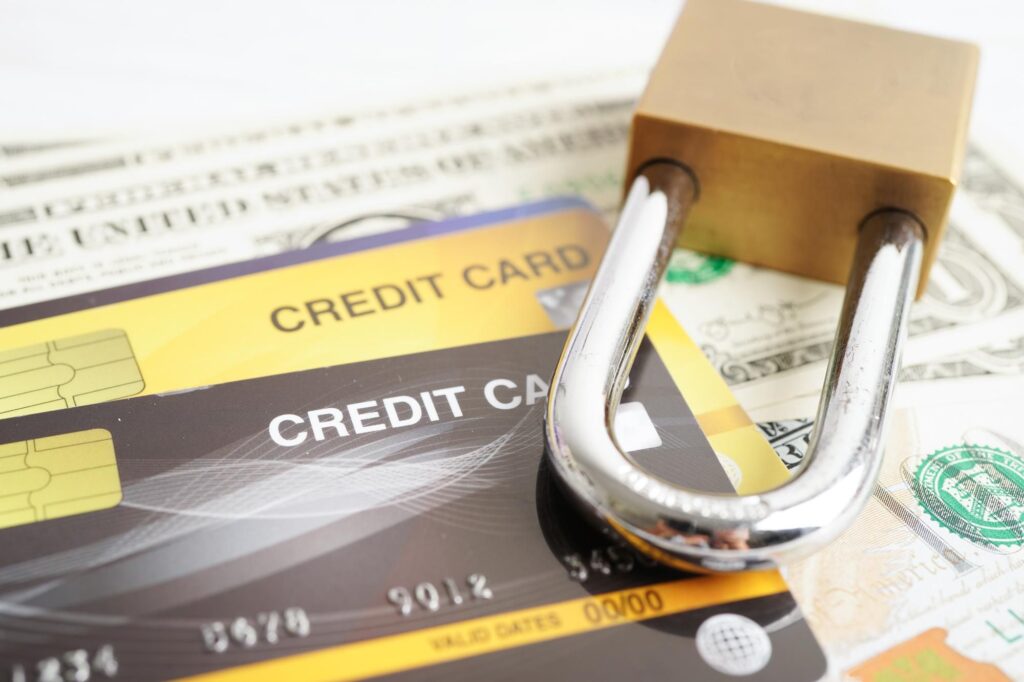How to Pay Off Credit Card Debt
Are you drowning in credit card debt? Do your monthly payments feel like a never-ending cycle of pain and despair? Fear not, my friend! With the right strategy and mindset, you can pay off your credit card debt and finally breathe easy. In this article, we’ll dive deep into the world of how to pay of credit card debt. We’ll discuss strategies that actually work (no “get-rich-quick” schemes here), as well as common mistakes to avoid. So let’s get started on the journey to financial freedom!

Why paying off credit card debt matters
It is no secret that credit card debt can be a major financial burden. With high-interest rates and fees, it can quickly snowball out of control if not properly managed. That’s why paying off credit card debt should be a top priority for anyone looking to improve their financial situation.
First and foremost, paying off credit card debt helps you avoid costly interest charges. The longer you carry a balance on your credit card, the more you’ll end up paying in interest over time. By making regular payments towards your balance, you’ll reduce the amount of interest charged and ultimately pay less in the long run.
Additionally, paying off credit card debt can improve your credit score. A high amount of outstanding debt on your credit cards can negatively impact your credit utilization ratio – one of the key factors used to calculate your credit score. By reducing or eliminating this debt, you’ll lower your utilization ratio and potentially see an increase in your overall score.
Overall, paying off credit card debt is essential for achieving financial stability and reaching long-term goals such as saving for retirement or purchasing a home. With careful budgeting and discipline, anyone can work towards becoming free from the burdens of high-interest debts like those found on most common consumer-based loans like personal loans or payday loans.
Assess your debt: Understanding your credit card balances
One of the first steps towards paying off credit card debt is to assess your current debt situation. This involves understanding your credit card balances, including the interest rates and minimum payments required. It’s important to have a clear understanding of how much you owe on each card and what your overall debt-to-income ratio is.
To do this, gather all of your credit card statements and make a list of the balances, interest rates, and minimum payments owed. You can use online tools or calculators to help you determine how much you’ll need to pay each month in order to pay off your debts in a reasonable amount of time.
Once you have a clear picture of your credit card balances, it’s important to prioritize which cards to pay off first. Focus on paying off the cards with the highest interest rates first as they will cost you more money over time if left unpaid. By taking these steps towards understanding and prioritizing your credit card debt, you can begin working towards paying it off and achieving financial freedom.
Create a payoff plan: Strategies for tackling debt
One of the first strategies for tackling credit card debt is to create a payoff plan. This means setting a goal for how much you want to pay each month and sticking to it. One approach is the snowball method, where you start by paying off your smallest debts first before moving on to larger ones. Another approach is the avalanche method, where you tackle your highest-interest debts first.
Finally, it’s important to prioritize paying off credit card debt over other expenses like entertainment or dining out. By cutting back on unnecessary spending and focusing on repaying what you owe, you’ll be able to make progress toward financial freedom and reduce the stress associated with being in debt.
Budgeting tips: How to cut expenses and increase income
One of the most common financial struggles people face is credit card debt. If you’re trying to pay off your credit card debt, budgeting is an essential step to take. Cutting expenses and increasing income can help you free up some funds that you can then use to pay off your debt.
To cut expenses, start by taking a close look at your monthly bills and see where you can make cuts. For example, could you switch to a lower-cost cable TV or internet plan? Could you reduce how much money you spend on eating out? These small changes add up over time and will allow more money to go toward paying off your credit card debt.
Increasing your income doesn’t necessarily mean getting a higher-paying job. You can also consider freelancing or doing side gigs in your spare time. You could sell items online or rent out a room on Airbnb for extra cash. By implementing these budgeting tips, you’ll be well on your way to becoming debt-free!
Negotiate with creditors: Lower interest rates and payment plans
Negotiating with creditors can be an effective way to lower interest rates and establish payment plans. Start by contacting your credit card company and expressing your financial situation. Ask if they are willing to work with you to create a more manageable payment plan. Many creditors are open to negotiating terms that will allow you to pay of your credit card debt in a timely manner.
Another option is exploring balance transfer options, which can help consolidate debt and lower interest rates. Be sure to read the fine print carefully, as some balance transfer offers may come with hidden fees or penalties. It’s important to weigh the pros and cons of any offer before moving forward.
Remember that negotiating with creditors takes time and effort, but it can ultimately lead to a more manageable financial situation. Stay persistent and keep communication lines open throughout the negotiation process. With patience and determination, you can take control of your finances and successfully pay off credit card debt.
Maintain good habits: Tips for staying out of debt
1) Start by creating a budget that includes all your income and expenses. This will help you see where your money is going and where you can make cuts in order to pay off debt. Stick to this budget rigorously, keeping track of every expense, and adjust it as necessary.
2) Make the minimum payment on all of your credit cards each month, but then focus on paying down the card with the highest interest rate first. Once that card is paid off, move on to the next highest interest rate card until they are all paid off.
3) Avoid adding any new debt while paying down existing debt. Cut back on unnecessary spendings, such as eating out or buying clothes, until you have reached your financial goals.
4) Set specific goals for yourself and celebrate when you reach them. For example, set a goal to pay off one credit card in three months or to reduce overall debt by 10% in six months. Celebrate these accomplishments with something small like a favorite meal or treat – just be sure not to go overboard!
5) Get a second job or find a way to make some extra cash. There are many ways to make some extra money, from working overtime at your current job to finding freelance work online. The more money you can earn, the faster you will be able to pay of your debt.
Conclusion: Celebrate your progress and financial freedom
In conclusion, paying off credit card debt is a significant achievement and should be celebrated. It’s not easy to make the necessary sacrifices and changes in your spending habits to become financially free. Therefore, it’s important to take a moment to acknowledge and appreciate your progress.
Once you’ve paid off your credit card debt, you’ll have more disposable income every month than before. You can use this extra money to invest in your future goals or enjoy some well-deserved rest and relaxation. The financial freedom that comes with being debt-free is truly liberating.
Remember that the journey toward financial freedom doesn’t end with paying of credit card debt. It requires continued effort in managing your finances wisely, saving regularly for emergencies, investing for long-term growth, and living within your means. However, by staying focused on these goals and celebrating every milestone along the way, you can achieve lasting financial success.







One Comment
Pingback: